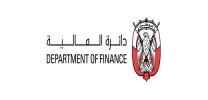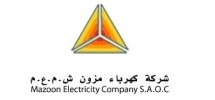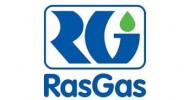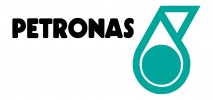
Power Capacitors: Applications, Switching problems, Protection & Maintenance
Course Introduction:
The capacitor usually consists of two conductors separated by an insulating substance. Among other materials which may be used, a capacitor can be made of aluminum foil separated by oil-impregnated paper.
Ideally, the best electrical supply would be a constant magnitude and frequency sinusoidal voltage waveform. However, because of the non-zero impedance of the supply system, of the large variety of loads that may be encountered and of other phenomena such as transients and outages, the reality is often different. The Power Quality of a system expresses to which degree a practical supply system resembles the ideal supply system.
Low power factor is a problem that can be solved by adding power factor correction capacitors to the plant distribution system.
Correction capacitors work as reactive current generators “providing” needed reactive power (kvar) into the power supply. By supplying their own source of reactive power, the industrial user frees the utility from having to supply it, therefore, the total amount of apparent power supplied by the utility will be less.
At this point, let it suffice to say that keeping the power factor close to 1 is a considerable economic advantage to the utility company and to the consumer. Inductance is the element in the circuit which is pulling the power factor below 1.
The capacitor counteracts this loss of power and makes power production more economical.
Course Objectives:
After participating in this course, participants will be able to:-
· Analyze the power distribution system in order to determine the need for improvement of power factor
· Calculate energy cost savings associated with the installation of capacitor bank
· Gain the practical knowledge to be able to specify the size and configuration of capacitor bank and associated auxiliary equipment to suit your specific needs
· Optimal location and sizing of capacitors along distribution networks
· Protection schemes for capacitors
· Problems associated with capacitor’s switching and many more
Who Should Attend?
This course is designed for Engineers, technologists and technicians, and other technical personnel from industrial users, power utilities industry, municipal utilities, consulting engineering firms and manufacturers of electrical equipment who are involved with the design, installation, operation and maintenance of electrical power distribution systems. Also plant managers, project engineers, and all personnel involved in the planning, recommending, selling and purchasing electrical distribution systems equipment. This course is a must for people involved in electrical power systems that use capacitors in an industrial plant setting, on distribution feeders and in distribution networks.
Course Outline:
Capacitor Fundamentals
- Capacitance of Parallel Plates and Spheres
- Cylindrical Capacitors
- Energy Stored in a Capacitor
- Charging and Discharging of a Capacitor
Power Factor Concepts
- The Power Factor
- The Synchronous Condenser
Industry Standards
- Standards Organizations
- Standards Related to Capacitors
Capacitor Specifications
- Types of Capacitor Banks
- Capacitor Specifications
- Other Types of Capacitors
Testing of Capacitors
- Design Tests
- Routine Tests
- Installation Tests or Field Tests
Location of Shunt Capacitors
- Considerations in Locating Capacitors
- Considerations in Handling Substation Capacitors
- Shunt Capacitor Bank Configurations
- Cables for Power Capacitors
Power Factor Improvement
- Fixed versus Switched Capacitors
- Fixed and Switched Capacitor Applications
System Benefits
- Reactive Power Support
- Voltage Profile Improvements
- Line and Transformer Loss Reductions
- Release of Power System Capacity
Series Capacitors
- Series Capacitors on Radial Feeders
- Series Capacitors for Transmission Lines
- Limitations of Series Capacitor Applications
- Other Series Capacitor Applications
Surge Capacitors
- Insulation Withstand Strength
- Sources of Fast Front Surges
- The Protection System
- Capacitors for Circuit Breakers
Capacitors for Motor Applications
- Reactive Power Requirements
- Additional Effects Due to Capacitors
- Selection of Capacitor Ratings
- Motor Starting and Related Issues
Static VAR Compensators
- Compensation Concepts
- Effect of Shunt Compensation
- Description of an SVC
- Losses and Harmonics in the SVC.
- Effect of SVC on Bulk Power Systems
Protection of Shunt Capacitors
- Overcurrent Protection
- Protection against Rack Failures
- Unbalance Protection
Overcurrent Protection
- Types of Fusing
- Capacitor Fuses
- Selection of Fuse Links
- Effect of Open Fuses
Circuit Breakers
- Types of Circuit Breakers
- Circuit Breaker Ratings
- Circuit Breaker Performance
- Circuit Breakers for Capacitor Switching
Surge Protection
- Lightning Surges
- Types of Lightning Surges
- Surge Arresters
- Surge Arrester Characteristics
- Nature of Temporary Overvoltages
- Protective Coordination
Maintenance and Troubleshooting
- Maintenance
- Troubleshooting
Harmonic Filtering
- Harmonic Sources
- System Response to Harmonics
- Acceptable Performance
- Harmonic Filters
- System Response Considerations
- Filter Design
Capacitor Transformer Transients
- Transformer Capacitor Energization
- Capacitor Switching and Transformer Transients
- Reducing the Voltage Transients
Capacitor Switching
- Switching Operations
- Voltage Acceptance Criteria
- Insulation Coordination
Induced Voltages in Control Cables
- Sources of Induced Voltages
- Acceptable Induced Voltages
- Example System
- Calculation of Induced Voltages
- Effect of Lightning on Control Cables
Course Methodology:
A variety of methodologies will be used during the course that includes:
· (30%) Based on Case Studies
· (30%) Techniques
· (30%) Role Play
· (10%) Concepts
· Pre-test and Post-test
· Variety of Learning Methods
· Lectures
· Case Studies and Self Questionaires
· Group Work
· Discussion
· Presentation
Course Fees:
This rate includes participant’s manual, Hand-Outs, buffet lunch, coffee/tea on arrival, morning & afternoon of each day.
Course Timings:
Daily Course Timings:
08:00 - 08:20 Morning Coffee / Tea
08:20 - 10:00 First Session
10:00 - 10:20 Coffee / Tea / Snacks
10:20 - 12:20 Second Session
12:20 - 13:30 Lunch Break & Prayer Break
13:30 - 15:00 Last Session





.jpg)






















































































































